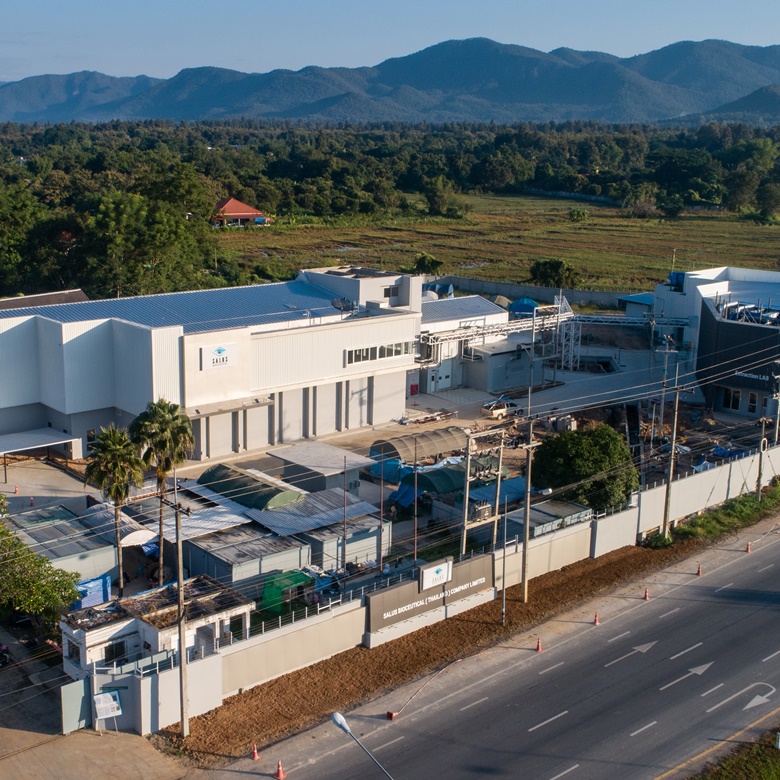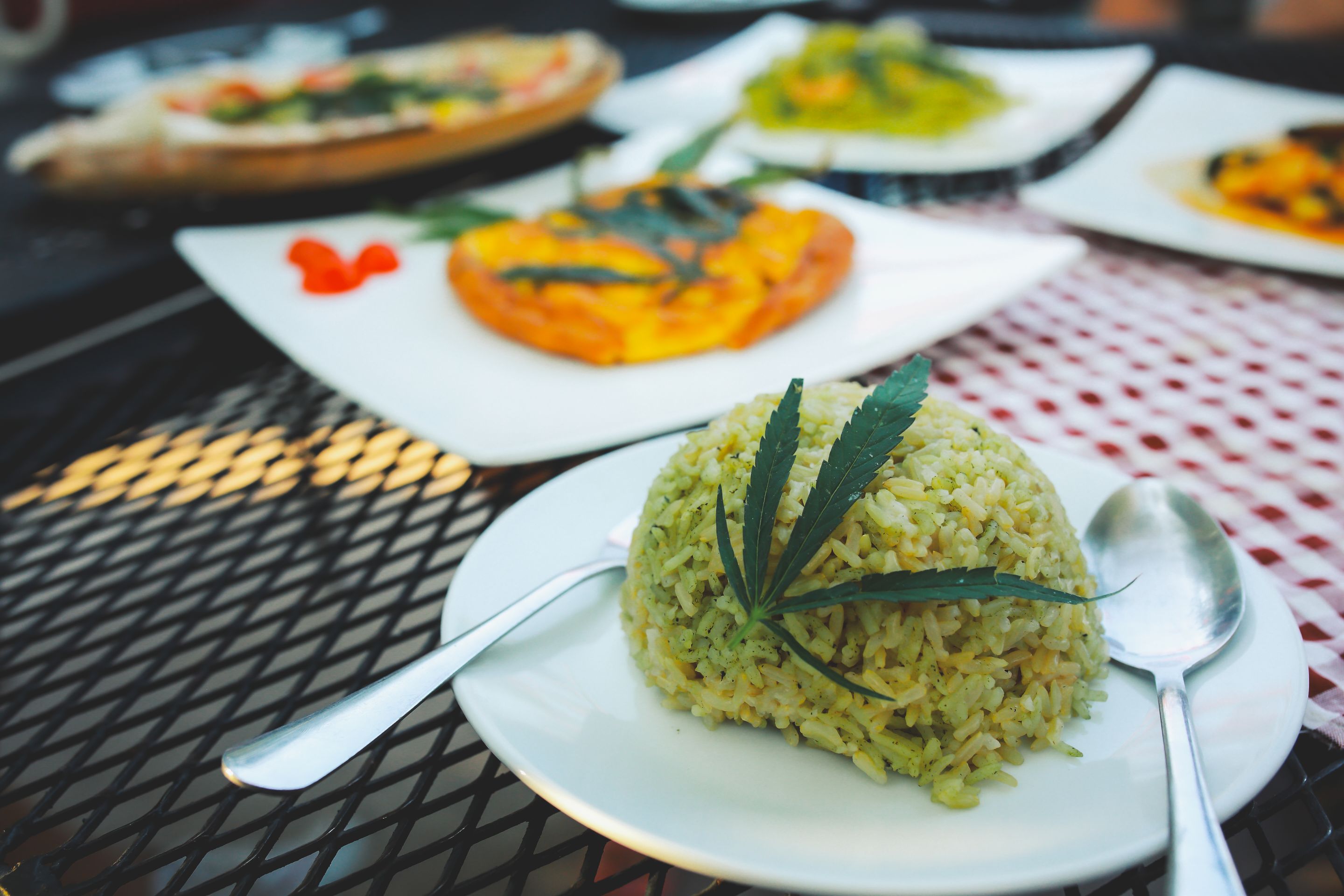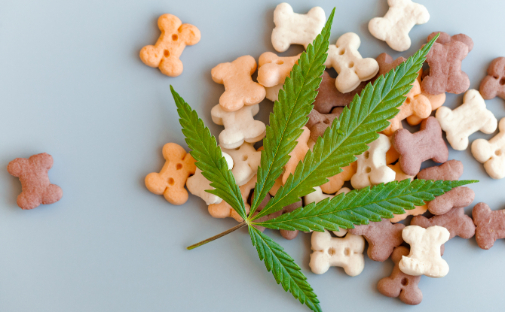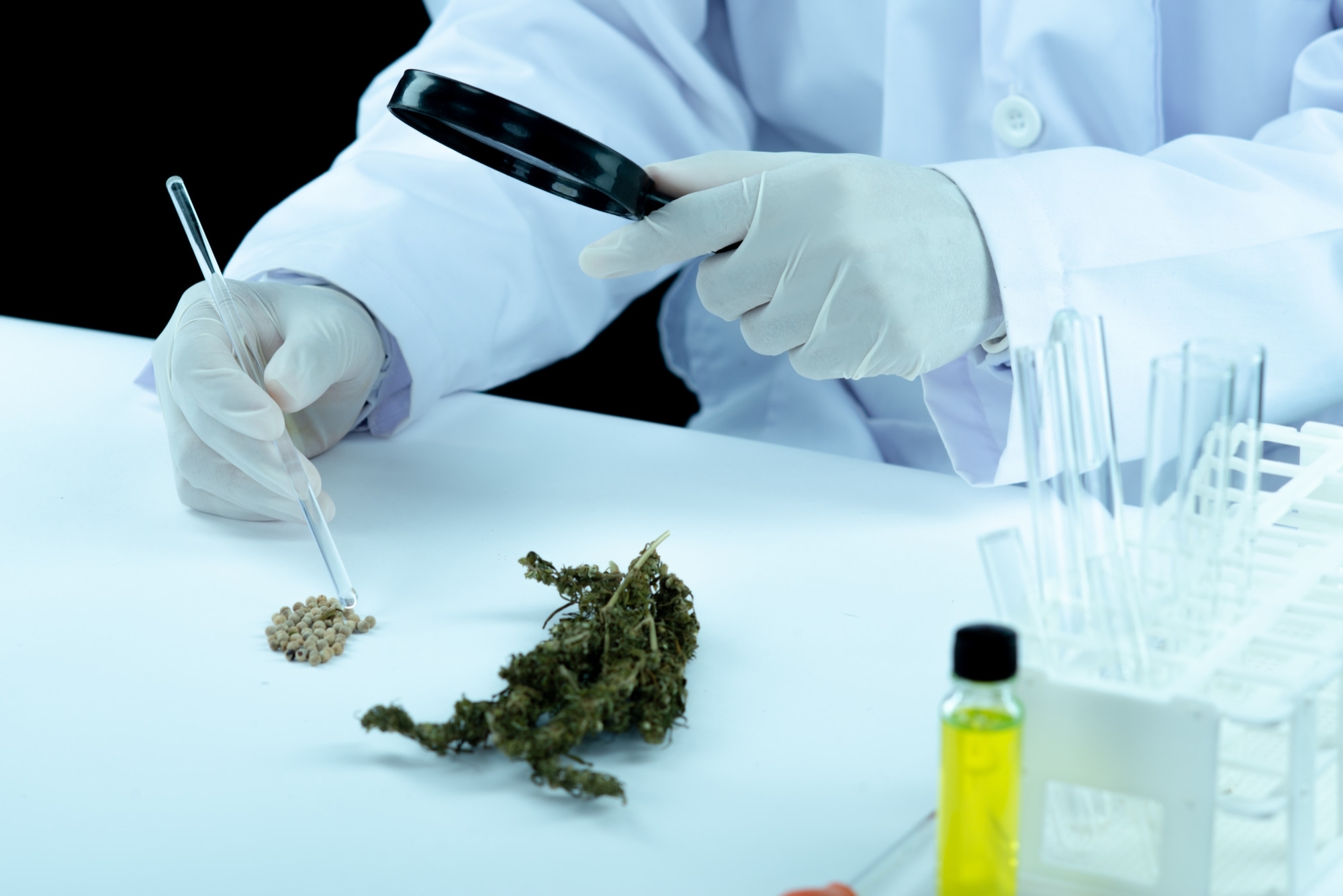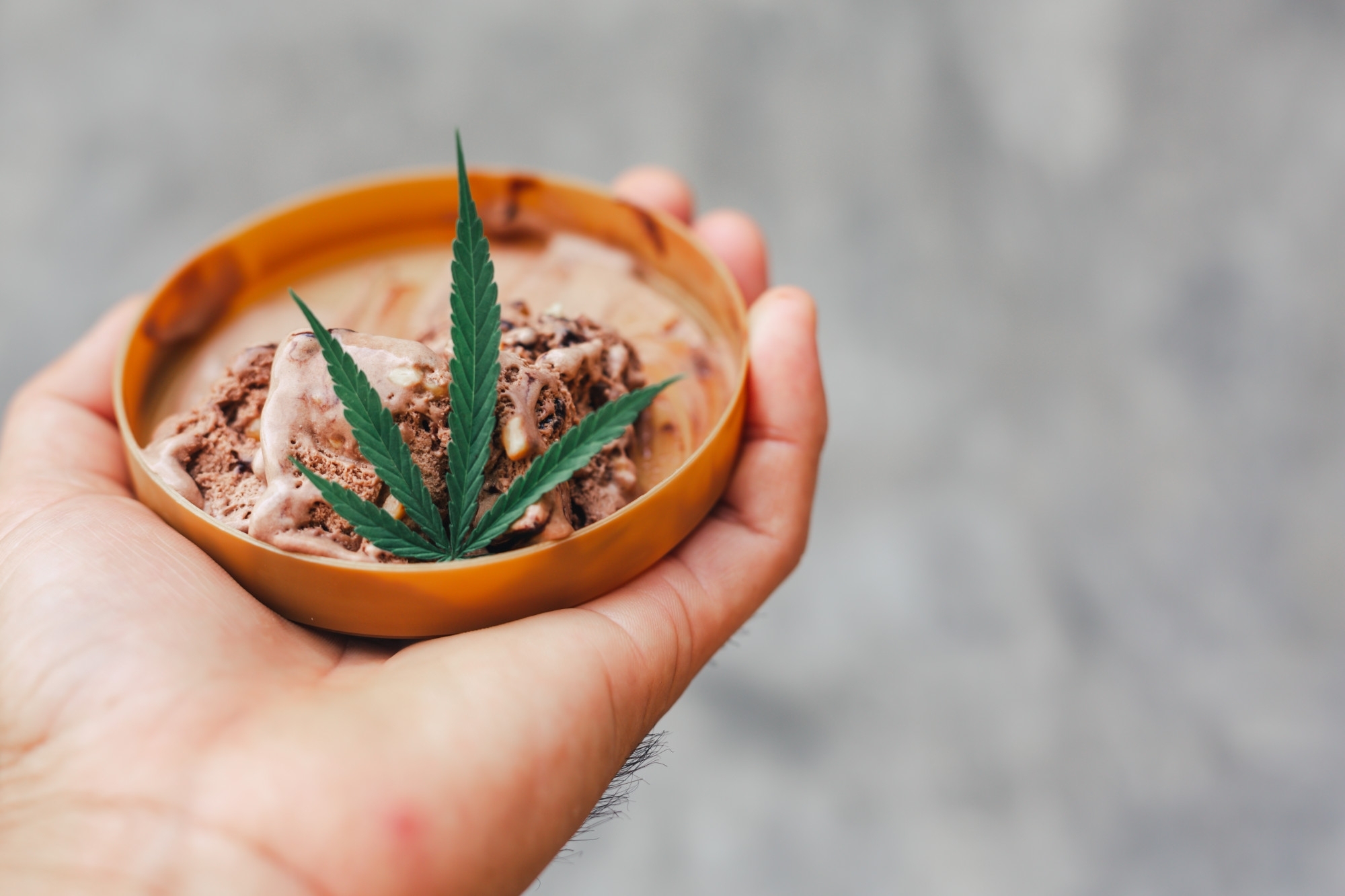The beverage industry is divided into two categories: 1) non-alcoholic beverages such as water, soft drinks, soda, energy drinks, sports drinks, fruit juices, ready-to-drink tea, coffee, and 2) alcoholic beverages such as beer, spirits, and wine.
The non-alcoholic beverage market overview in Thailand and worldwide tends to be competitive and expanding continuously, particularly healthy drink products, caffeine drinks, ready-to-drink products in convenience stores, or freshly brewed beverages from the café [1]. Creating a unique and differentiated product is necessary for the market competition because an outstanding product can attract consumers. Moreover, natural extracts with functional health properties are also an interesting option.
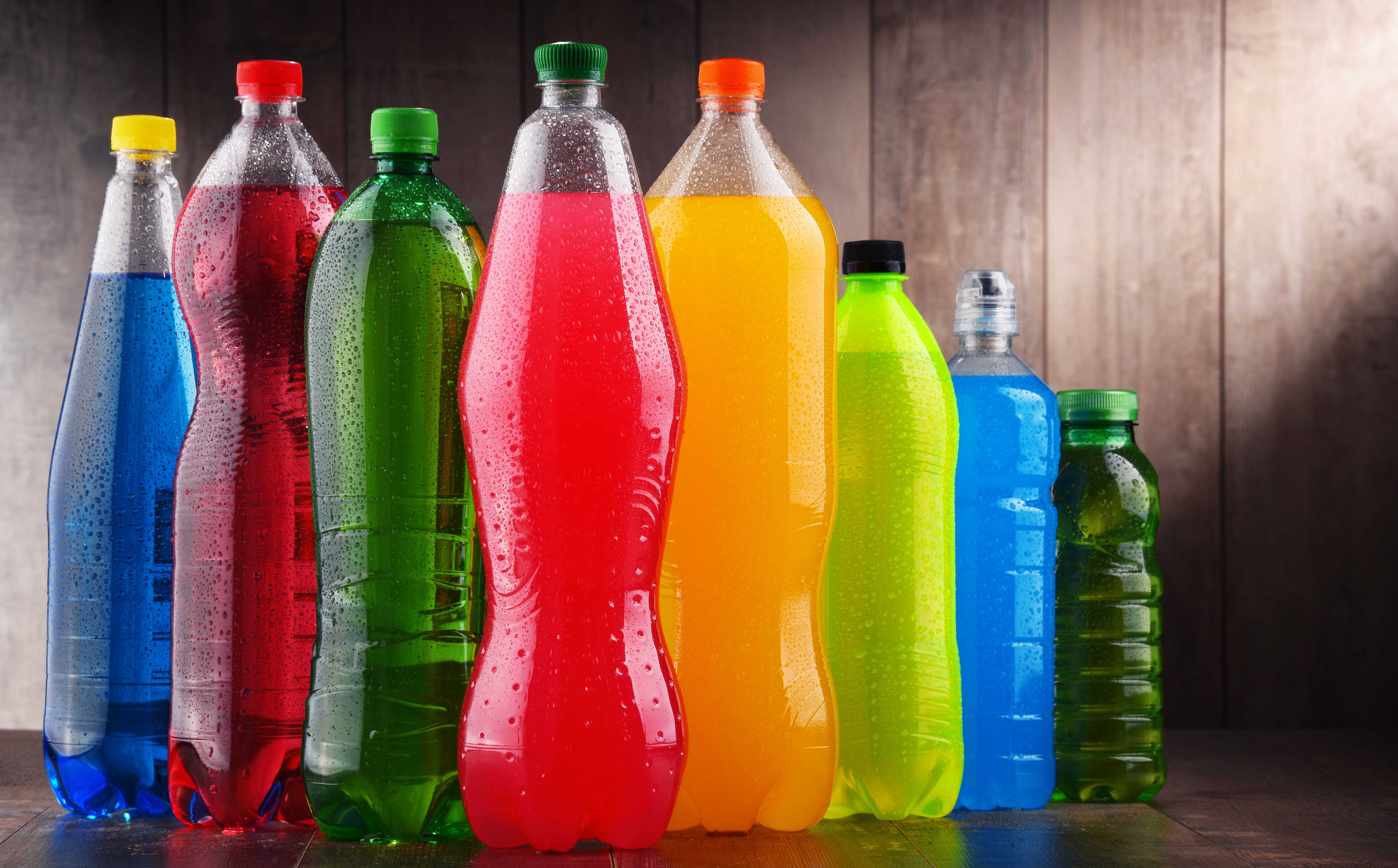
Interaction between CBD and Caffeine
Nowadays, caffeine is the most famous stimulant, which has proven to increase alertness, reduce fatigue, and increase efficiency in concentrated work [2]. There are also research studies on the interaction between caffeine and cannabidiol that have a synergistic effect on the metabolic system in the human body [3]. A publication in the Journal of Internal Medicine (2018) studied the effects of coffee consumption on increasing metabolites. Through biochemical mechanisms within the body, 1 in 5 of the main biochemical mechanisms in the body that have an increased response to caffeine intake is the endocannabinoid mechanism [4].
(More information about the endocannabinoid system: )
In other studies, the effect of cannabidiol oil on Adenosine interaction regulates wakefulness. Cannabidiol oil stimulates adenosine receptors activity resulting in free adenosine increasing, which causes more feeling relaxed and reduces anxiety. On the contrary, caffeine inhibits adenosine action by interrupting adenosine and adenosine receptors' binding. This inhibition results in the body becoming more alert is one of the side effects of caffeine consumption [4]. Moreover, the number of adenosine neurotransmitters can also bind the proteins that signal to activated immune cells [5, 6]. This mechanism supports the fact that cannabidiol extract has anti-inflammatory and anti-anxiety properties.
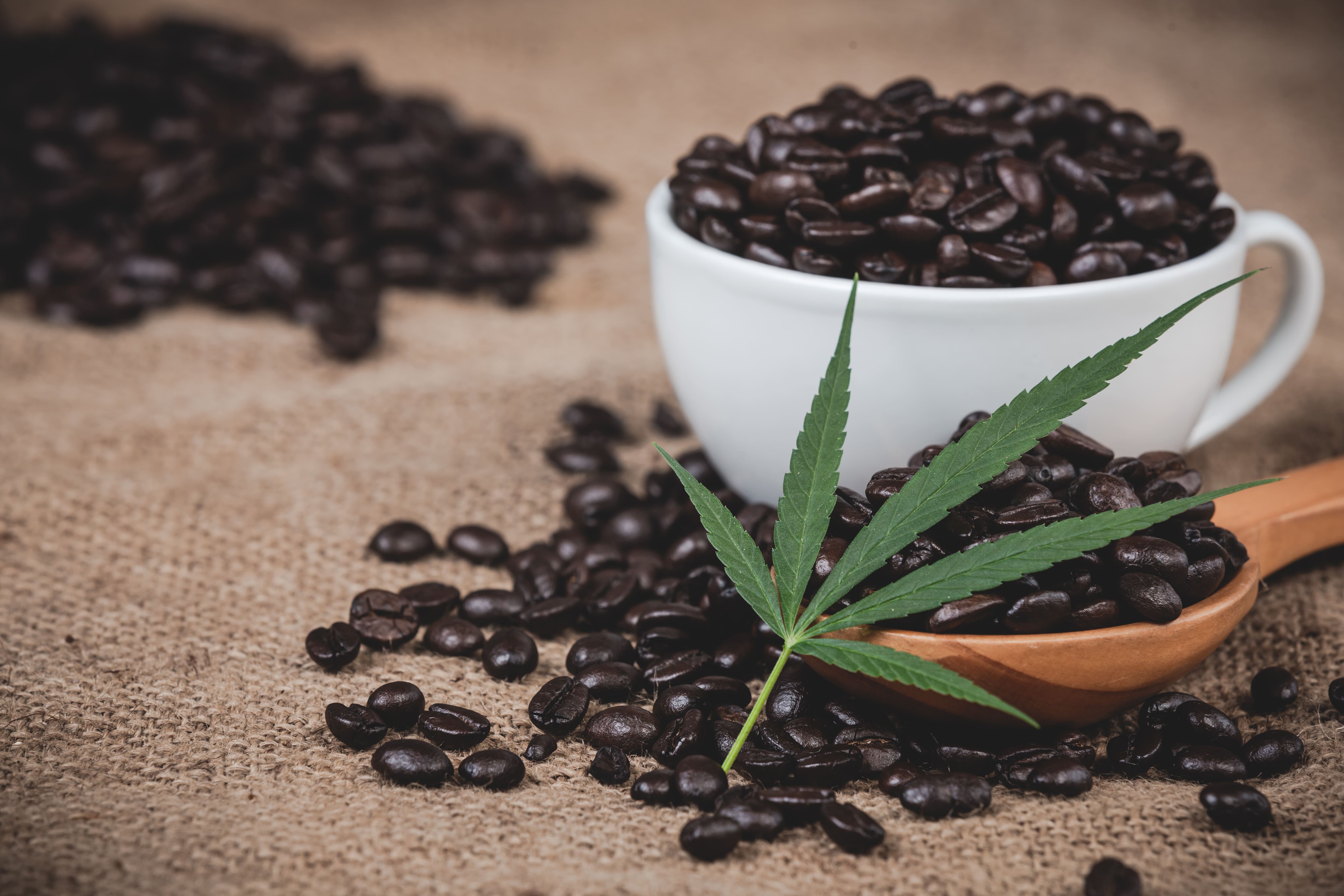
Tea, coffee, soft drinks, and other beverages containing cannabidiol can boost alertness without anxiety, especially for those sensitive to caffeine. Cannabidiol helps to reduce the undesirable side effects of caffeinated drinks. Therefore, cannabidiol is an alternative option for the beverage industry manufacturers, both large and small scales, to create outstanding products from others and value-added by blending with the highest quality and purity cannabidiol extract (Premium Grade) from Salus Bioceutical Thailand (SBT) company that every production process operates following GMP/PICs standards and having an accurate standardization audit. Our customers are guaranteed to receive consistently excellent quality, safe, and efficient CBD extract. Cannabidiol extract products from SBT are available in various forms, which can be selected as appropriate for use. We recommend cannabidiol soluble powder (Broad-spectrum CBD) as an ingredient in beverage products because it is well dissolved in water and convenient for further usage and formula development of various beverage products.
References
[1] Wanna Yongpisanphob แนวโน้มธุรกิจ/อุตสาหกรรมปี 2562-2564: อุตสาหกรรมเครื่องดื่ม [ออนไลน์] แหล่งที่มา https://www.krungsri.com/th/research/industry/industry-outlook/Food-Beverage/Beverage/IO/io-beverage-20-th [2565 มิถุนายน 10]
[2] Smith A. Effects of caffeine on human behavior. Food and Chemical Toxicology. 2002; 40(9): 1243–1255. https://doi.org/10.1016/S0278-6915(02)00096-0
[3] Bellocchi, L., et al. The endocannabinoid system and energy metabolism. Journal of neuroendocrinology 2008; 20(6): 850-857.
[3] Cornelis M C, Erlund I, Michelotti G A, Herder C, Westerhuis J A, Tuomilehto J. Metabolomic response to coffee consumption: Application to a three-stage clinical trial. Journal of Internal Medicine. 2018; 283(6): 544–557. https://doi.org/10.1111/joim.12737
[4] Costenla A R, Cunha R A, de Mendonça A. Caffeine, adenosine receptors, and synaptic plasticity. Journal of Alzheimer’s Disease: JAD, 2010; 20 Suppl 1: S25-34. https://doi.org/10.3233/JAD-2010-091384
[5] Liou G I, Auchampach J A., Hillard C J, Zhu G, Yousufzai B, Mian S, Khan S, Khalifa Y. Mediation of Cannabidiol Anti-inflammation in the Retina by Equilibrative Nucleoside Transporter and A2A Adenosine Receptor. Investigative Ophthalmology & Visual Science. 2008; 49(12): 5526–5531. https://doi.org/10.1167/iovs.08-2196

